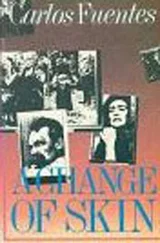In the university, we learn, in the end, that our thoughts and our actions can bring us together; sciences and humanities; univocal logic and plurivocal poetics. Planted in the soil and under the roof of a university these plants can coexist, complement one another, and bear fruit together.
The university is a stage — no doubt the most important one — in an educational process that begins in primary school and continues on in the perpetual school we all attend: that is, the education of life. I repeat: there is no such thing as progress without knowledge and there is no such thing as knowledge without education. As such, education, in a most explicit manner, should be the first item on the agendas of all the nations of the world, from the most to the least developed.
We must, of course, accept the fact that culture predates the nation and its institutions. Culture, no matter how minimal and rudimentary it may be, precedes the various forms of social organization on which it now makes demands. Ever since the dawn of time, various different types of cooperation and divisions of labor have evolved along with the development of skills, the dissemination of knowledge, and the conflicts that erupt as the result of friction between languages, customs, and territories, between the generosity of the mother that loves all her children equally and the paternal need that separates them, assigns firstborn privileges, divides land, inherits property, ascribes power, and establishes the obligation to defend, preserve, increase the family resources, and banish the Other — the Devil, the natural disaster, the adversarial god, and Death, which are seen as the original crime, divine murder.
In the course of this process, various ways of being emerge— ways of eating, walking, sitting, loving, communicating, dressing, singing, dancing. Ways of dreaming, as well. Day by day, all these elements come to comprise a culture, creating what Ortega y Gasset referred to as a constellation of questions to which we respond with a constellation of answers. This is the process of culture: questions and answers. The Spanish philosopher takes this even further: the fact that many answers are possible is a clue, telling us that many cultures have existed and continue to exist. The one thing that has never existed is an absolute culture: that is, one culture that provides a satisfactory answer to all questions. For this reason, culture and university rotate around the same axis, for both aspire to have roots and fly at the same time, to touch the local ground and ascend to the universal firmament.
Let us take root, then, in our Mexican and Latin American ground, as a starting point.
And let us be honest: our extraordinary Latin American cultural continuity has still not found, fully and completely, a comparable political and economic continuity.
A nation, Isaiah Berlin reminds us, is constituted by the wounds it has suffered. Wounded by her own hand as well as by the rest of the world — through conquest, colony, revolutions, imperialism. Latin America, despite its many calamities, has managed to create nations that, more or less, continue to maintain the borders established during the period of independence, borders that go back as far as the days of colonial administration: we are not the Balkans. Let us lose neither our individual national unity nor our shared Spanish-American fraternity as we work toward achieving, eventually, a position on the international stage that is open, generous, and without chauvinism and xenophobia.
The basis for all this is the consolidation of both national and cultural identity. If a nation is anchored in its culture, it is strong. If it simply brandishes an ideology, it is weak. My question, then, is this: can education be the bridge between the cultural abundance and political and economic paucity of Latin America? No, it is not a question of ascribing a cure-all quality to education as we did with religion (resign yourselves), independence-era constitutions (legislate yourselves), nation-states in the first half of the twentieth century (nationalize yourselves), or private enterprise in the second half of the twentieth century (privatize yourselves). It is a question, rather, of giving both the public and the private sector their respective roles as well as very specific functions in the educational process — and not by demonizing one or the other, but by holding both sectors accountable to the social needs of the collective in question and embodied by the third sector, civil society.
Classic wisdom tells us that true unity emerges from diversity. Contemporary experience tells us that by respecting our various differences we will create strong nations, and by denying them, weak nations. Historical memory confirms for us, in the end, that the origin of today’s great nations lies in the mixture of races and cultures. No Latin American education can avoid addressing the continent’s national and regional particularities. And we can be certain that a respectable, unified whole will emerge from such respected diversity.
Education, all over the world, needs public programs in order to survive. Without them, the explosion of demand may lead to a substandard market of low-quality education for the population at large and high profits for enterprising businessmen. We must defend public education. But public education requires cooperation from the private sector. If the private sector does not support public education, it will marginalize its potential consumers: for production to grow, education must grow and improve as well, and only when both these goals have been met can the standard of living go up. This is true all over the world.
I hasten to add that this effort also requires the support of the third sector, which represents a substantial mass of a country’s human capital. Sometimes, where bureaucracy is blind, civil society is able to identify the problems of the lost village, the working mother, the urban neighborhood where Buñuel’s olvidados, or forgotten ones, dwell: in the Brazilian favela, the Argentinian villa miseria, the Mexican ciudad perdida, the Venezuelan chabola. . in short, the slum.
I believe that education must be a public effort, supported by the private sector and kick-started by the social sector. And its foundation is schooling: no man or woman under sixteen years of age should lack a desk and a chair. The goal is lifelong education; no citizen should ever stop learning. Learning, in our modern age, is a never-ending process: the more educated people are, the more education they will need throughout the course of their lives. The challenge — the challenge of education — is to offer knowledge that is directly connected to professional goals. Vocational education to meet the needs of villages, neighborhoods, outlying areas. Education for health. Education for savings. The social collectives of our respective countries demand this. Ultimately, we are talking about education for democracy — specifically, the democracy of the new Latin America. We must encourage citizens’ initiatives, civic involvement, local solutions to local problems, all within a legal framework that guarantees the division of powers, transparency in elections, and accountability of the authorities.
Nobody can lose knowledge if it is shared.
Cultures influence one another.
Cultures perish in isolation and flourish in communication.
The university, as its very name suggests, is called to mediate between cultures, challenging prejudices, pushing our limits, increasing our capacity to give and receive, and broadening our ability to understand all that is foreign to us.
In the university we can embrace the culture of the Other so that the Others may embrace our own.
Читать дальше












